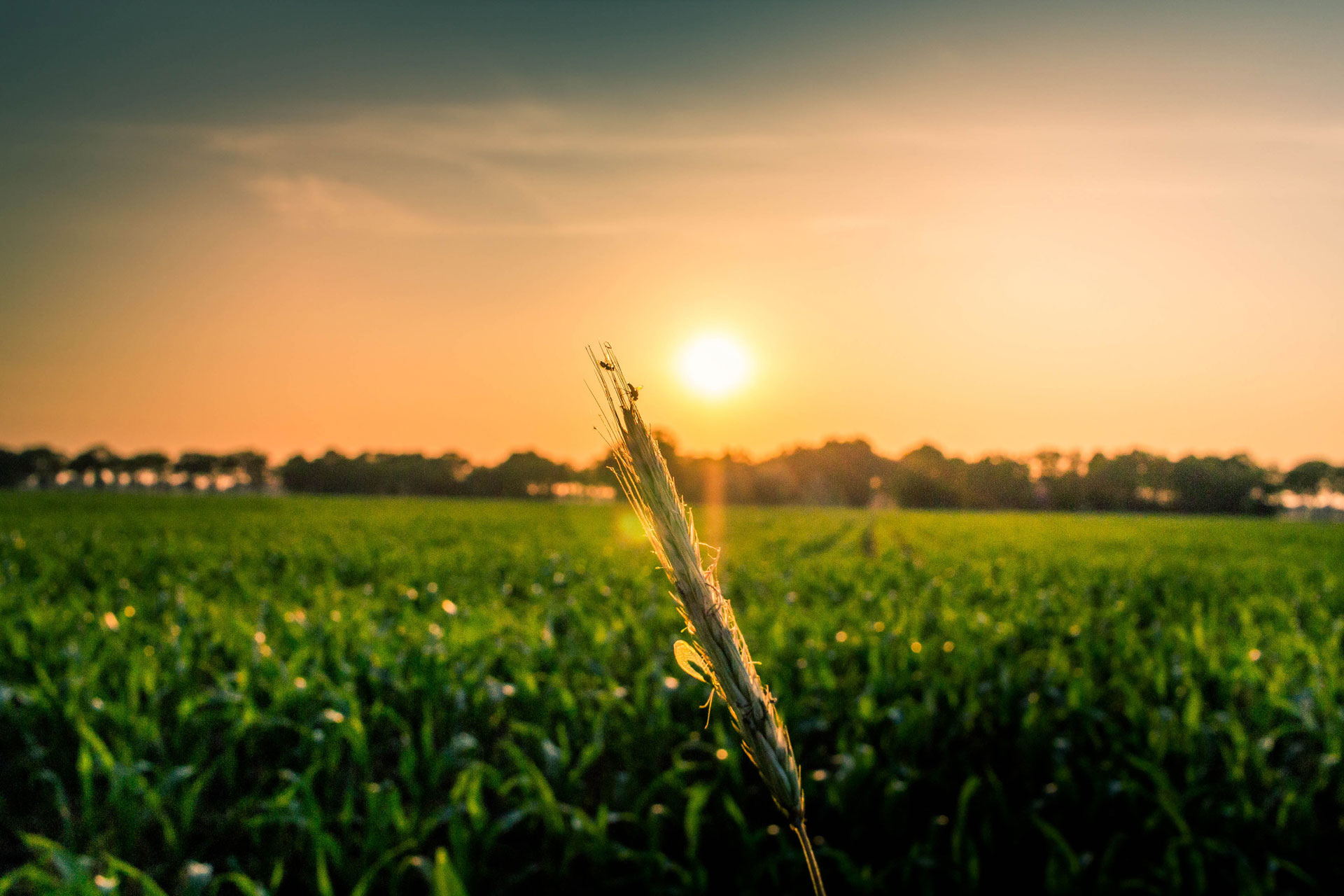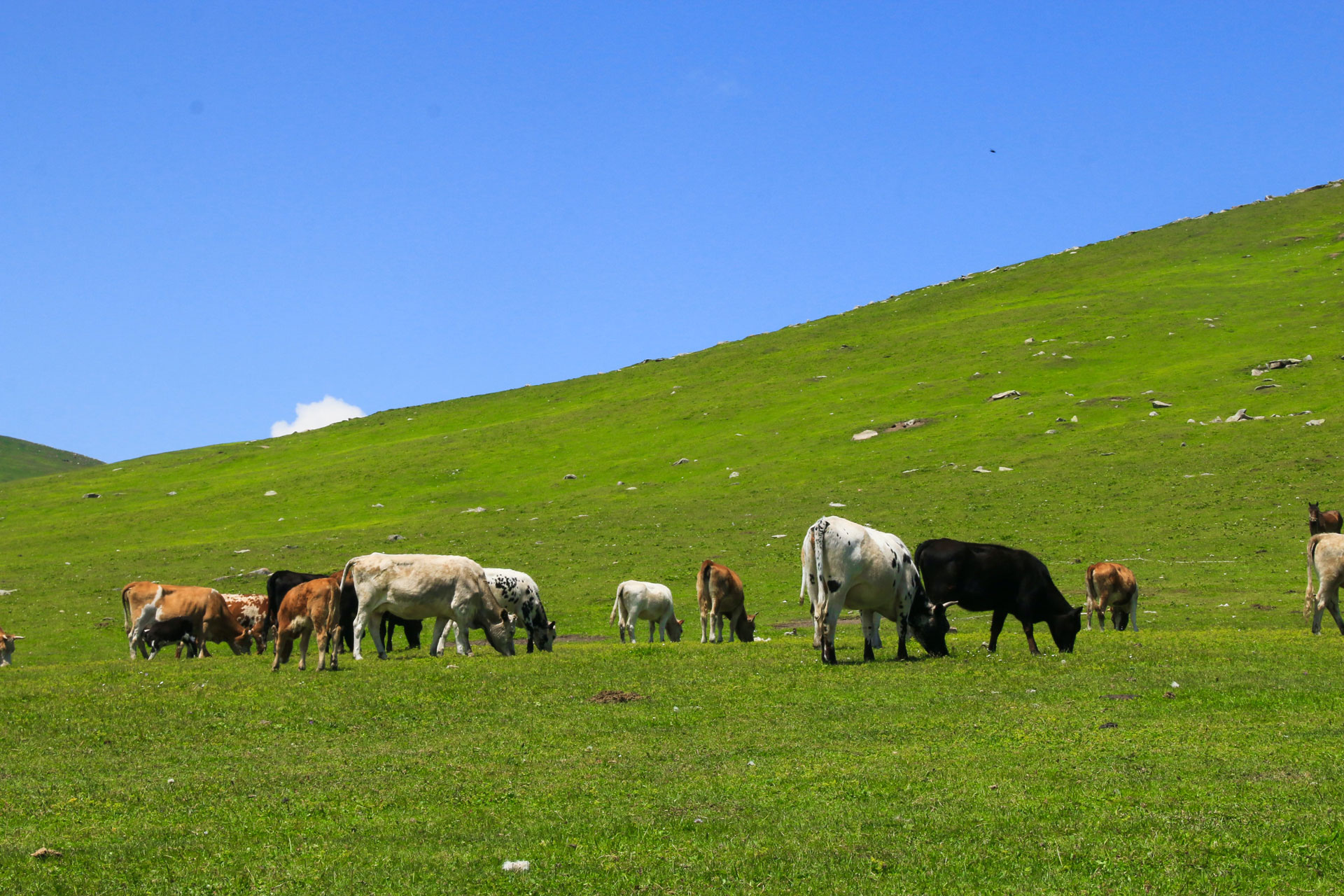Sustainability Terms Explained: Regenerative Agriculture
By
3 years ago
The farming movement hoping to save the earth from the soil up

Next in our Sustainability Terms Explained series: regenerative agriculture
In 2021, over 3,500 farmers came together for a two-day festival in Hertfordshire called Groundswell. They were united by one overriding goal: a commitment to regenerative agriculture. In previous years the festival took place in one (albeit large) room – but this year, it was spread across multiple fields, with seven stages. Some people called it ‘the Glastonbury of farming.’
This surge in interest for Groundswell gives you an idea of how much traction the regenerative agriculture movement has gained over the past few years. But what does the buzzword actually mean – and how could it help save our planet?
What is Regenerative Agriculture?
There’s no set definition as such, but broadly speaking regenerative agriculture is a system of farming that seeks to benefit the environment. At its core is a commitment to soil health, with farmers aiming to disturb the soil as little as possible. In stark contrast with intensive farming, regenerative farmers view their land as an ecosystem and work with nature to protect it.
Though it’s come into the spotlight in recent years, this type of farming has its roots in traditional, small-scale methods, looking back to pre-war times when industrial chemicals weren’t around. Farmer and ecologist Allan Savory is often credited as a pioneer of the modern-day movement, having claimed in a 2013 online lecture that following its principles could ‘reverse climate change’.

What Are the Benefits?
The main principles include avoiding tilling (turning over and breaking up the soil), protecting soil from water and wind erosion, growing a diverse range of crops and using grazing animals for natural fertilisation. Advocates argue all this has an abundance of benefits, including locking carbon into soil, benefitting ecosystems, improving crop health and encouraging biodiversity.
Yet for farmers looking to switch systems, there are challenges – mostly surrounding money. Currently farmers aren’t paid more for producing food to higher standards, and there are costs involved with changing methods. But things may be improving. As part of its plan to re-shape the farming landscape post-Brexit, the UK government is placing high importance on soil health, with farmers soon to earn up to £70 per hectare for ‘actions to improve the health of their soil’.
So could regenerative farming be the future? Yes, says Sue Pritchard, chief executive of the Food, Farming and Countryside Commission, who believes there are ‘hundreds of years of science’ to prove it. ‘Our research shows that a shift to regenerative agriculture will provide a net reduction of 66 per cent to 77 per cent of greenhouse gas emissions,’ she told the BBC. ‘The nature crisis and the crisis in health, and wellbeing and a green recovery following the pandemic, means that the whole of the farming system really does need to take up this challenge.’
MORE SUSTAINABILITY TERMS EXPLAINED:



